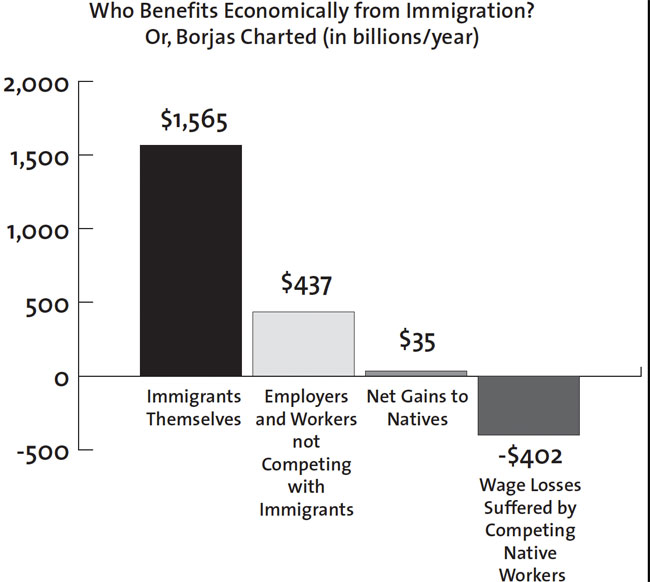it's obvious how the balance comes down for you, and that's fine. Just appreciate that it is a balance, and not everyone is required to see the trade-offs the same way you see them.
It's clear that America (and the West generally) have done a shitty job managing the negative impacts of migration, technology, and globalization. My preference is that any action we take to mitigate those impacts come out of the pocket of those who are reaping the biggest profits, not focused on the poor and middle class. Economists pretty much unanimously agree that shutting down immigration and putting up trade barriers would be very harmful to the American economy. Instead of harming the economy for everyone, I'd rather tax the rich (who overwhelmingly reap the benefits of migration, technology, and globalization) to expand access and quality of education, provide a better safety net, quality housing, better infrastructure, and so forth.
The hypothetical about "how would you feel if immigrants took your job" is a canard. I'd feel bad, but I only have one vote. Buggy whip manufacturers got the shit end of the stick too, but setting national policy to preserve and protect every single American individually is not only impossible, but foolish to even attempt. You can just look at some of the European economies and how stagnant their employment markets are because they put up these huge barriers to make it impossible to fire anyone - the result is, nobody gets hired, demand stagnates, and unemployment rises while GDP slumps.


